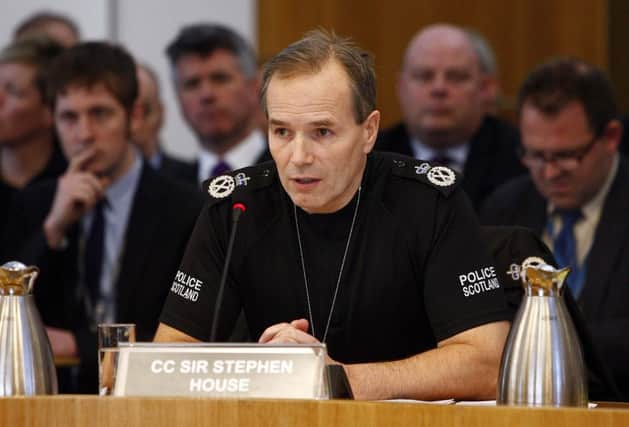Chris Marshall: Who is watching the police service watchdog


Tomorrow the watchdog will hear from Sir Stephen’s successor, as Phil Gormley makes his first appearance at an SPA meeting.
While really only on the radar of journalists and academics with an interest in justice matters, the meetings nevertheless provide an opportunity to hear at length from Police Scotland’s chief constable, often elicting newsworthy insights into how Scottish policing operates.
Advertisement
Hide AdAdvertisement
Hide AdThe SPA, a body which has been criticised for failing to properly scrutinise the police, recently made it an awful lot more difficult for itself to be scrutinised after it decided to stop publishing board papers in advance – much to the annoyance of reporters. Three years on from the creation of Police Scotland, the watchdog is still struggling to find its feet.
Under its previous chairman, Vic Emery, it was repeatedly accused of playing catch-up on major controversies such as armed policing.
Now under the stewardship of Andrew Flanagan, a chartered accountant, the police authority must work hard to build confidence that is up to the job.
A report delivered late last year by Scotland’s Auditor General described the need for a sound financial strategy for Police Scotland as being “critical”.
Audit Scotland’s report on the SPA’s 2014-15 accounts said incomplete records and poor financial management delayed the audit of SPA’s accounts, and said “substantial corrections” were needed before completion.
Appearing before MSPs on Holyrood’s audit committee earlier this month, Mr Flanagan said he had never before received such a serious audit report.
He said a long-term strategy would be developed by the end of March, adding he had seen nothing to suggest Police Scotland savings of £1.1bn by 2026 were “unattainable”.
John Foley, the SPA’s chief executive, sounded even more bullish, saying 85 per cent of the savings were already “in the bag”.
Advertisement
Hide AdAdvertisement
Hide AdYet Mr Foley was given a particularly difficult time by MSPs who wanted to know why SPA board members had repeatedly worked ten days over the recommended monthly limit, claiming £300 a day in expenses.
But as Police Scotland attempts to steady the ship under its new chief constable, the SPA has also begun to assert control over its bruised public image.
In a series of interviews last week, Mr Flanagan defended his organisation, even going as far as to question the Scottish Government’s long-standing commitment to a 1,000 extra police officers, which those inside the service would like to see dropped.
But the SPA still has a long way to go before it can be seen to be effectively holding the chief constable to account – the job it was set up to do.
At times it has seemed too close to Police Scotland. Too often in the past meetings descended into a love-in between Mr Emery and the chief constable.
The SPA board should take its lead from Holyrood’s audit committee and the roasting it gave Messrs Flanagan and Foley earlier this month.
Posing a few more difficult questions for the new chief constable to answer tomorrow would be a good place to start.